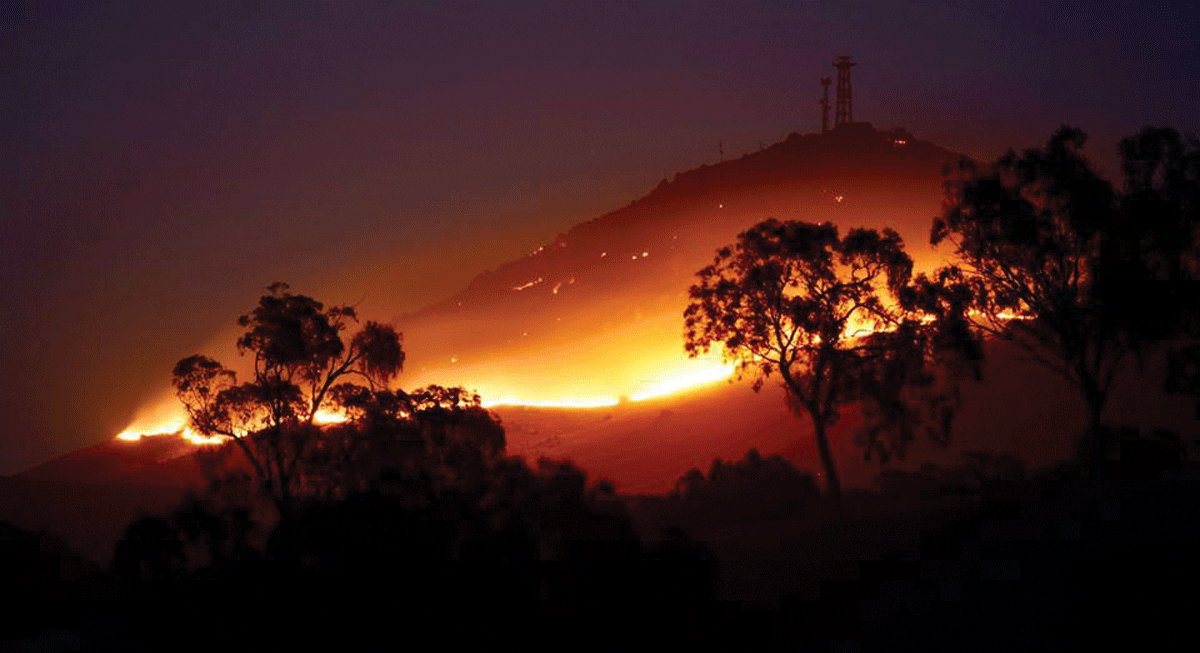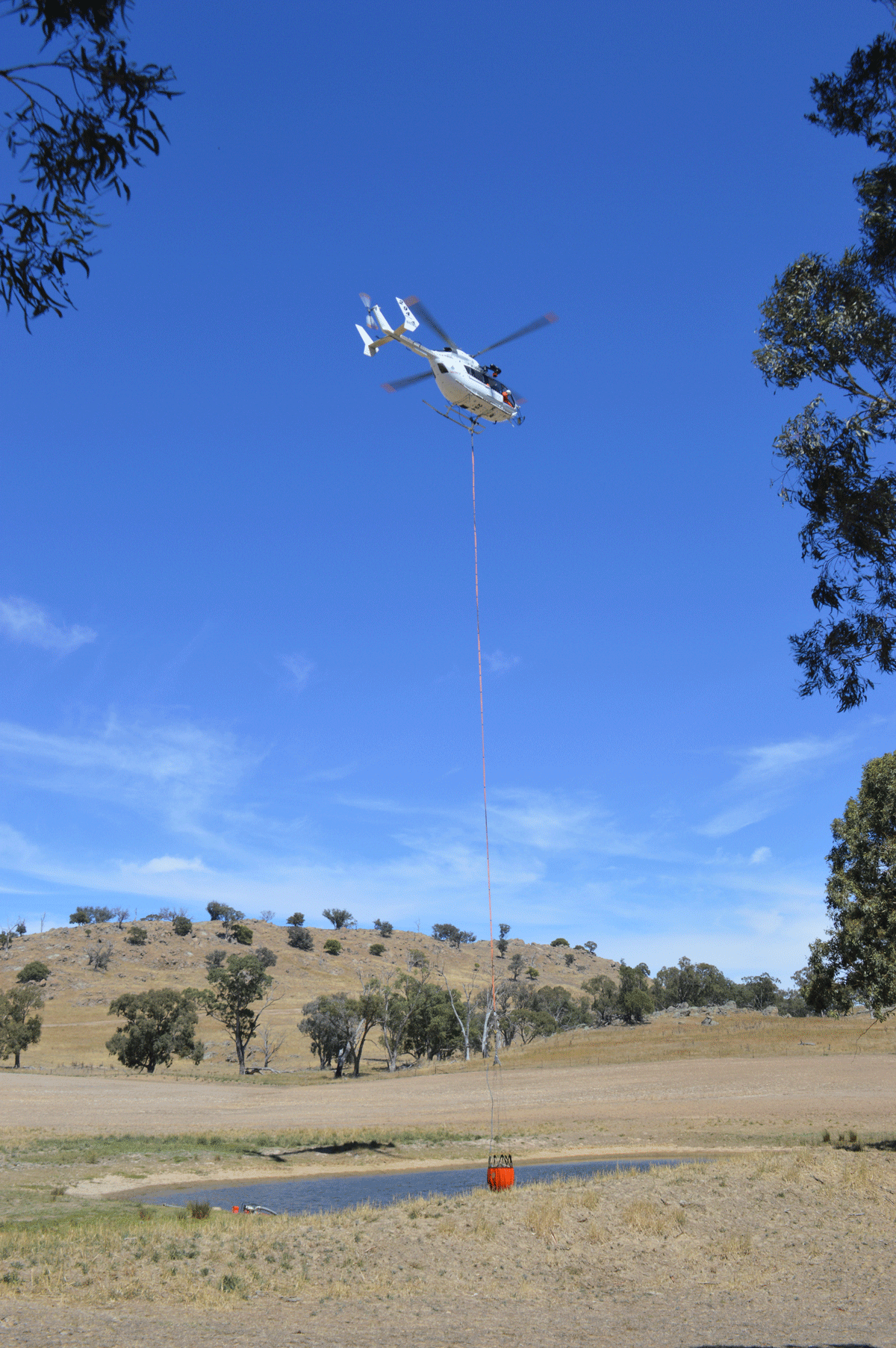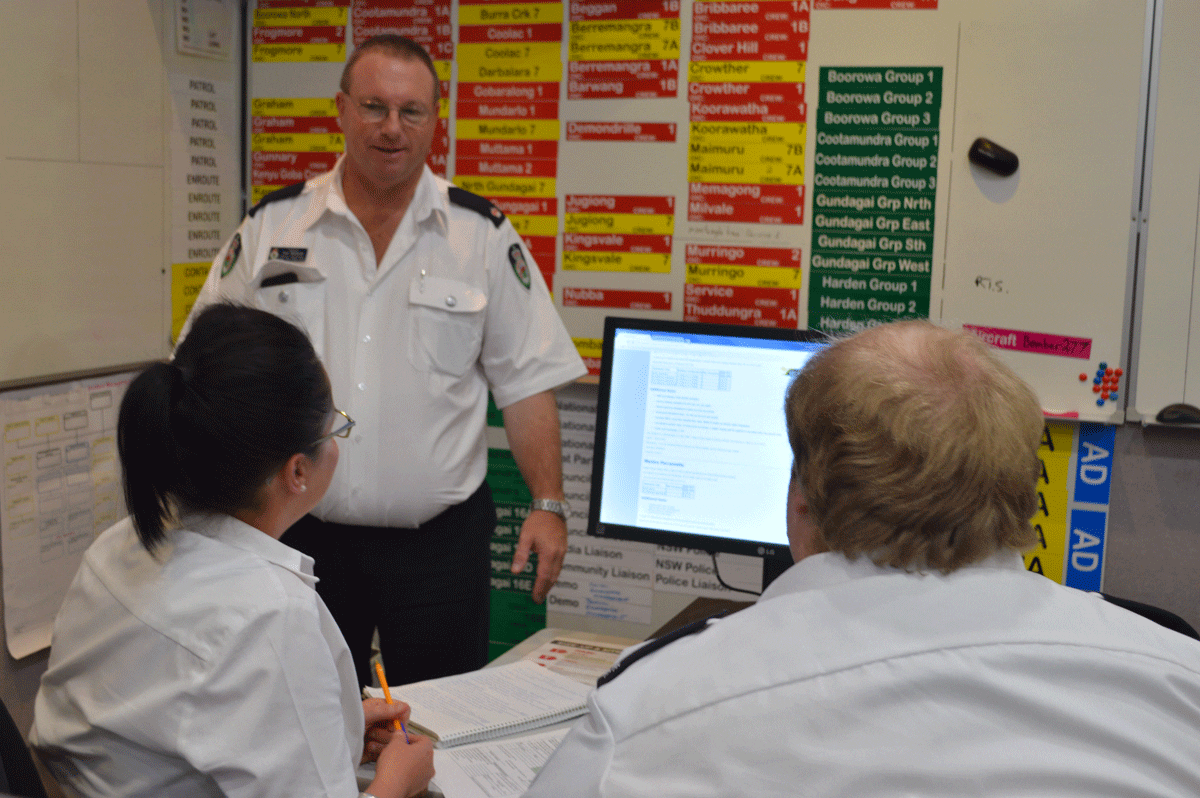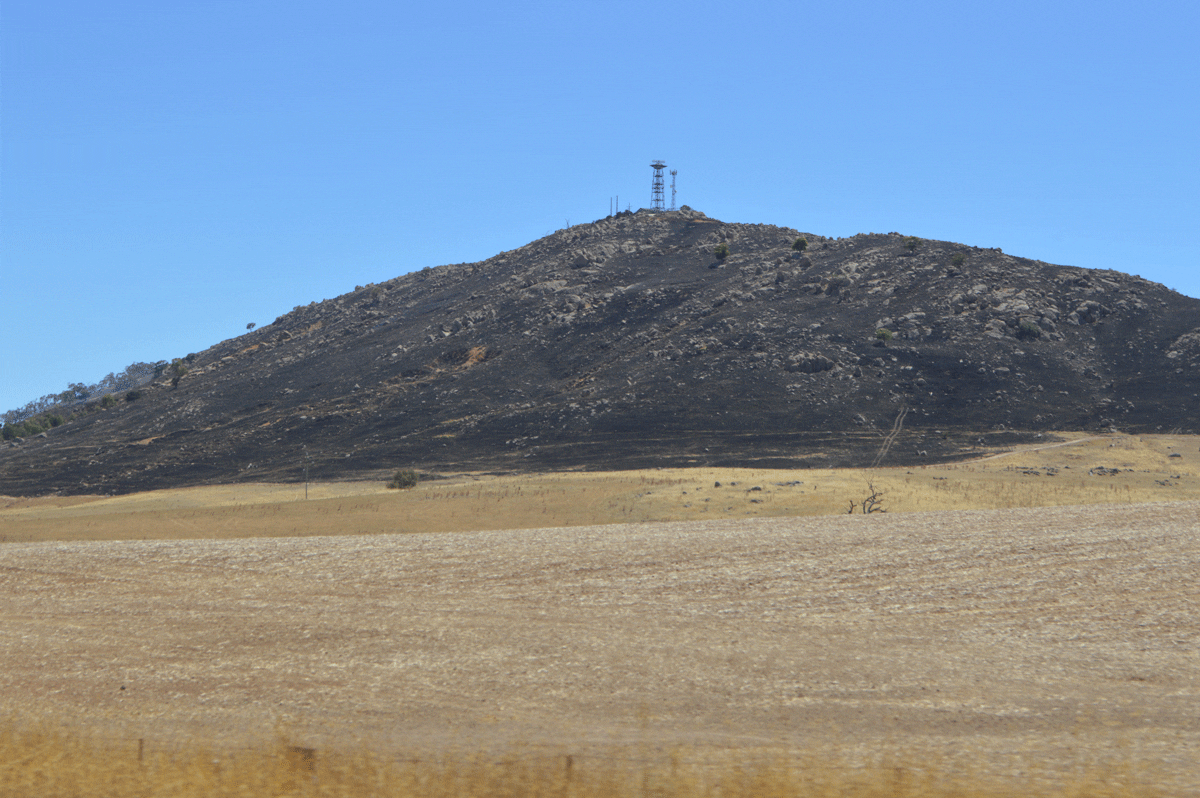Photo by Adam Best. Taken during backburning on Wednesday night Feb 14.
The Helicopter filling up on Thursday to attack smouldering logs. Tom McDevitt and staff at the Trinity Centre and Bobbara from the Burley Griffin Way taken on Thursday February 15.
The fire which burnt Mt. Bobbara Wednesday afternoon and into Thursday is being investigated by the Rural Fire Service and Police. What sparked the incident is yet to be determined; however, RFS representatives have pointed towards a welder being used as the instigator of the blaze. Over 60 firefighters attended the blaze with over 20 tankers called in and 3 light aircraft, including 2 fixed wing planes and a helicopter from Tumut. The Times was able to get the story on the front page last Wednesday afternoon before crews began to bring the fire under control around 4pm.
A total fire ban was in place and spark-emitting devices are not to be used on those days. The township of Binalong was under threat Wednesday afternoon from the fire with strong winds blowing from the west. 187 Hectares had been burnt by the time the operation was complete. The RFS responded to the fire with force deploying a ‘heavy weight of response’. Tom McDevitt, District Coordinator of South West Slopes zone based in Harden, spoke to the Times. He said, “We used a heavy weight of response with 20 tankers. Crews were controlling the fire by 4pm. Given the terrain and the weather conditions that they were experiencing, crews done exceptionally well to bring it under control. We had the fire contained around 4am the following morning with backburning and bulldozer work.” Thursday saw 24 crews and 6 tankers continue on the mopping up projects where they were assisted by a helicopter based out of Tumut which also fought the fire on Wednesday afternoon.
The chopper was able to dump up to 900 litres at a time on the fire. Trees continued to smoulder into Thursday evening before a skeleton crew was put in place to manage any flare ups. Thermal imaging was also used to detect any hotspots the following day from the chopper and the ground crews. Tom said, “In terms of our weight of attack we had plans in place with our group captains and we expected a fire on Wednesday. We had all measures in place to hit it with everything we could as early as we did. In our planning phases we looked at whether the fire would impact the town of Binalong and thankfully it didn’t, but we were in direct communication with our neighbouring zone from Southern Tablelands who supported us as well.”
The fire season is not over yet. McDevitt said, “There is no substantial rainfall on the horizon, we have been fortunate with the rain in December and January but the curing rate is coming back up and sitting at 80 percent, meaning the fuel percentage is high. The fire season will go through to March, however February is the last month of Summer. Tom said, “We were fortunate that the land was broken up with lucerne paddocks and some fallow country and farmers speed tilling canola stubble which was in our favour.” Landholders have been reticent to burn with permits since January and the uptake has been minimal such are the conditions. The RFS is a large organisation with many cogs in the wheel to fight fires, with McDevitts office in the Trinity Centre in East Street working with 16 Group Captains across the entire zone who come together to advise on decisions. Congratulations and thanks must go to all invloved in implementing a rapid and efficient response to what were atrociuous conditions last Wednesday. For photos of the fire head to the times website and Facebook page.




